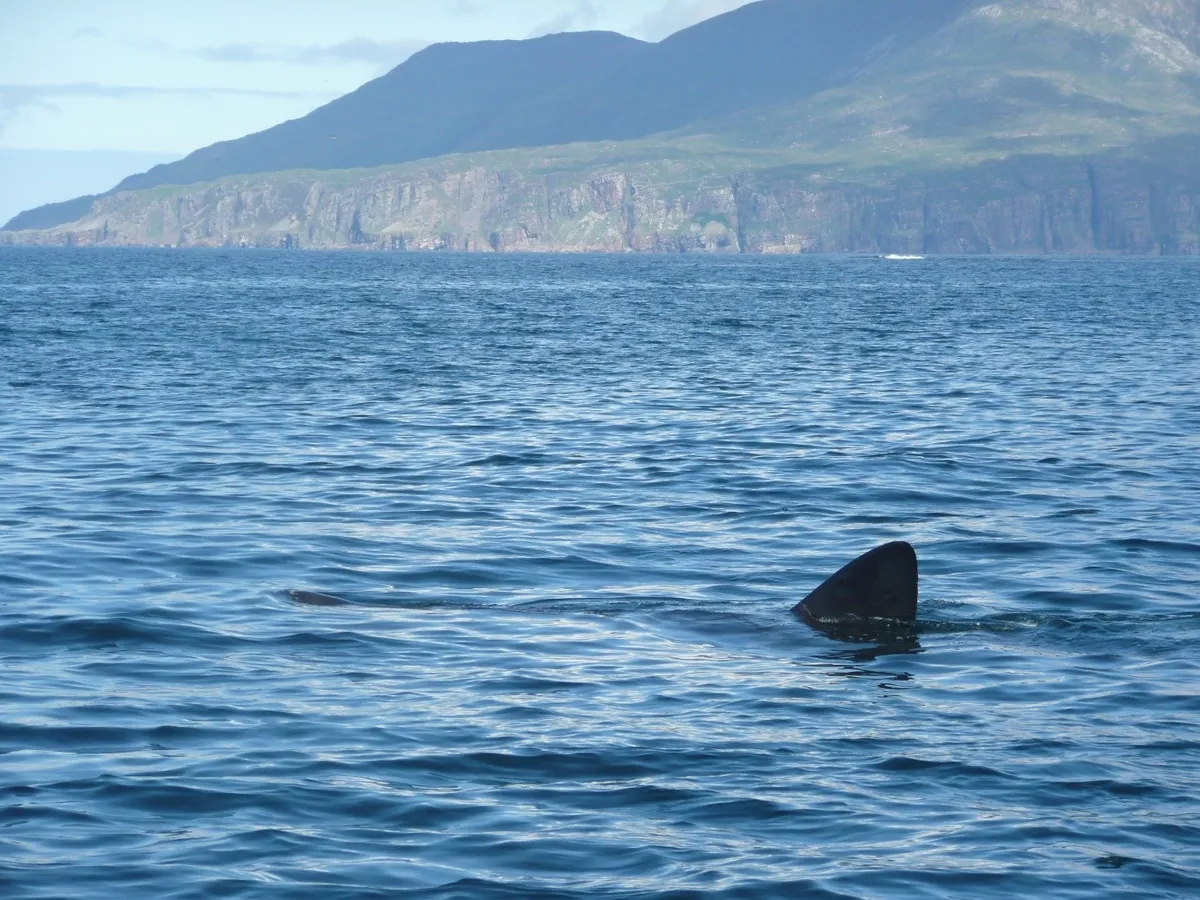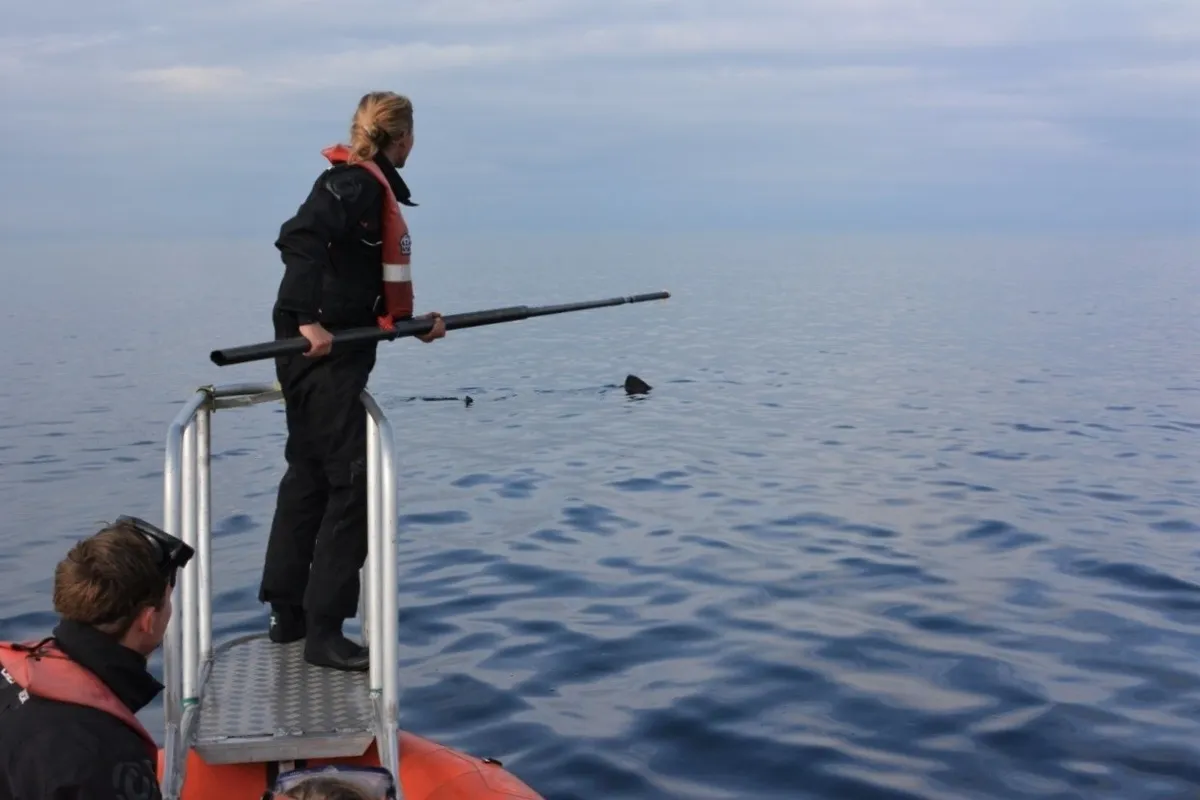A new study reveals fresh migration routes, and outlines the vulnerability of basking sharks to environmental change.
Basking sharks are the world's second largest fish, and feed on plankton and plankton blooms. They were recently reclassified as Endangered on the IUCN Red List.
The plankton blooms, such as those that occur on the west coast of Scotland, Ireland and the Isle of Man, can draw in hundreds of these sharks.
“Until this study the perception was they moved into warmer waters from globally distributed localities,” says Professor Les Noble, co-lead on the study, “sniffing out a plankton meal as they got closer to feeding sites, collecting in aggregations of unrelated sharks - like gourmets headed into town chancing on finding a good restaurant by smell. Now we know basking sharks book in advance at known Michelin starred venues, and take the family along!”

These blooms are microscopic plants that float under the upper layers of the sea which have access to sunlight. When a large amount of phytoplankton become concentrated in one particular area, the colour of the water transforms.
On a quest to discover if these sharks feed in the same locations in genetically similar groups, a team of scientists including Dr Lilian Leiber, Dr Catherine Jones, and Professor Les Noble, collected genetic samples.
The aim of their research to find the similarity in DNA between the sharks who were travelling together and whether these groups of fish return to the same feeding sites in successive years.
At first the team collected the samples from “stranded sharks taken both years and hundreds of kilometres apart, making them useless to population analyses,” explains Dr Leiber, first lead author on the study of the research publication.
She continues, “a breakthrough came when we discovered our technique worked on skin mucus.”
This turning point allowed the team to routinely swab aggregations of sharks “quickly and with minimal disturbance, to obtain genetic profiles of individuals travelling together.”

This process formed the creation of a register containing more than 400 DNA profiles over five oceanic regions.
85% of the samples were taken from swimming basking sharks at key sites in the Northeast Atlantic during the summer months, meaning these big fish came into no harm during this study.
Interestingly, the results found that some sharks were re-encountered within seasons and spotted within approximately the same sampling locations.
Ultimately, unlike their stereotypes, basking sharks, travel and feed with family. Only mixing in groups that are genetically similar to their own.
Dr Catherine Jones, co-lead of the study, explains, “relatives hang out together to learn migration routes and encourage cooperative behaviours.”
Although, it suggests that population size is unlikely to exceed 10,000 individuals in Northeast Atlantic waters.
However, the study also shows that there are genetic differences between the sharks sampled off the coast of Ireland and the North Atlantic. The loss of genetic differences in kin groups, means the sharks are more vulnerable to environmental change.
Finally, this ground-breaking study questions the ways in which we manage our marine environments for the benefit of wildlife.
“Losing a group of kin together, such as occurs during accidental bycatch, erodes variation rapidly, making these big, slowly reproducing fish less capable of evolving to cope with environmental ” adds Dr Jones.
“That, and a tendency to utilize areas currently designated for development of marine renewable energy, may not produce a happy outcome, unless we see intelligent management of marine environments.”
Read the full paper in Nature.
Main image: Basking shark in Baltimore, Cork, Ireland. © George Karbus Photography/Getty